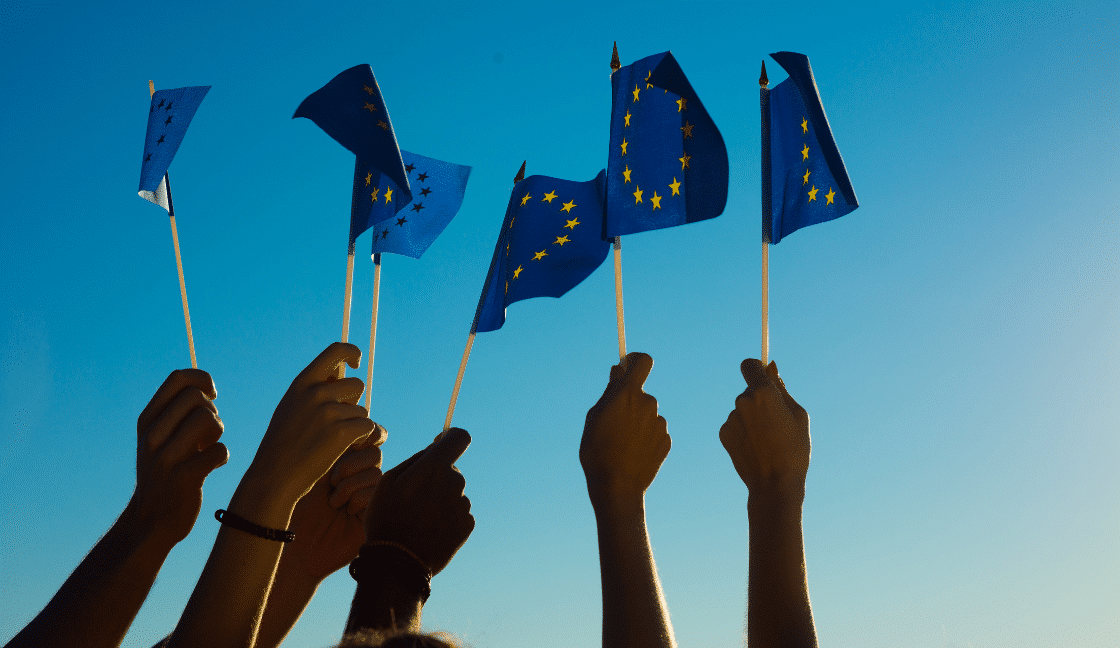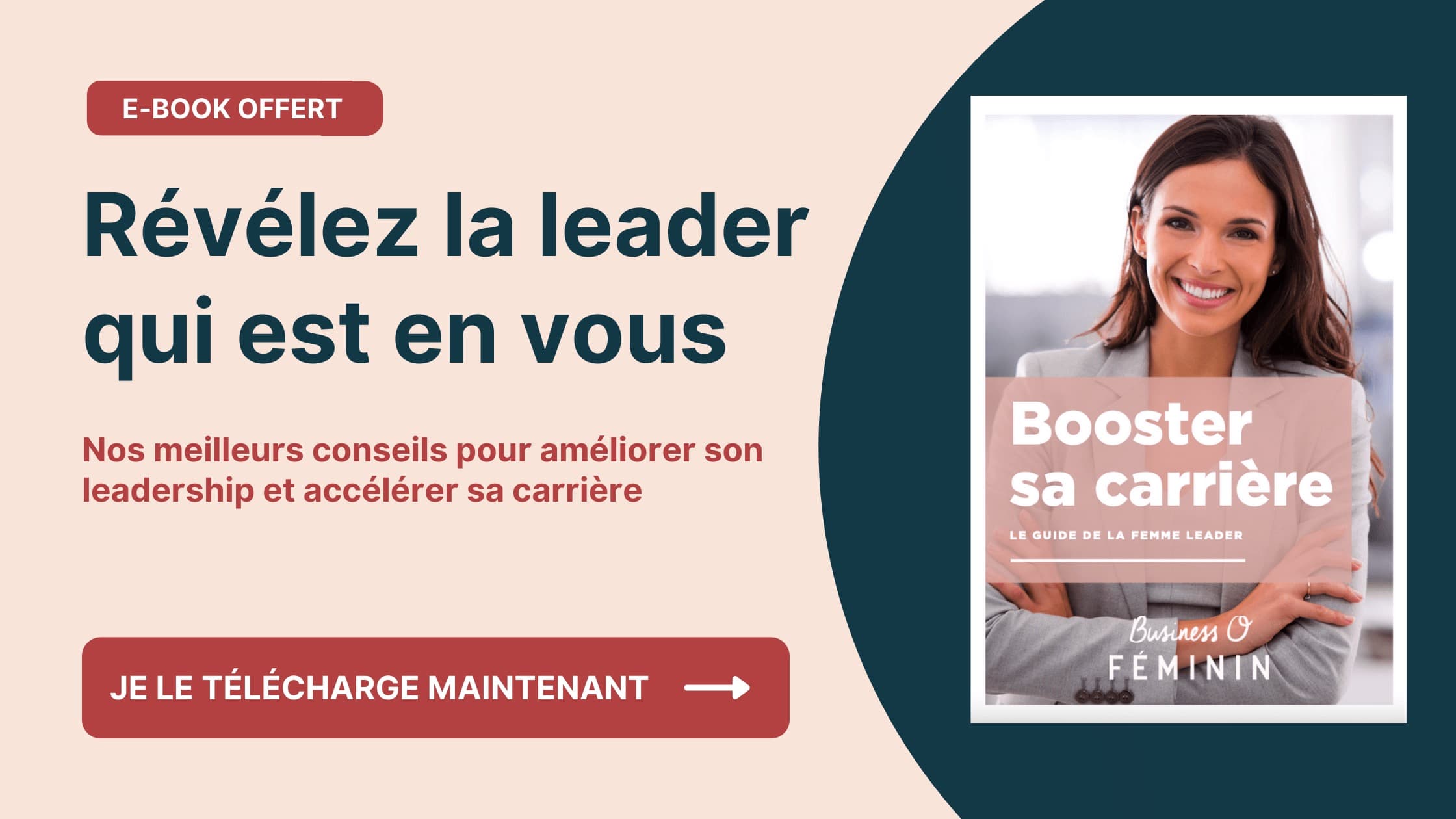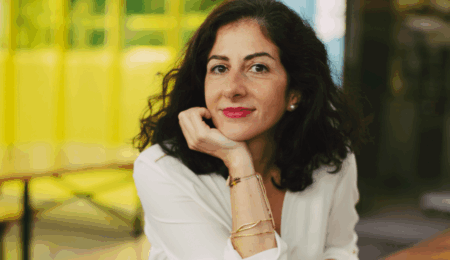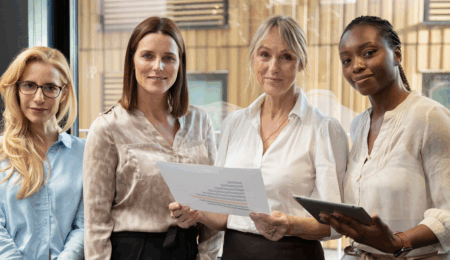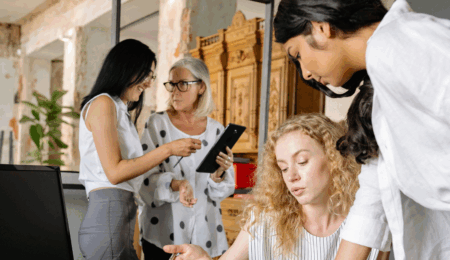Being European for the Young Generation of women. Business O Feminin decided to interview 14 young women from all over Europe. Their countries may be the founding fathers of the EU or the new Member States. They may have moved to other European countries or stayed in their homeland. They may be active working women or completing their studies. How do they see the EU ? What do they yearn for ? How to define these new generations of young active and passionate women ?
Portraits of “a generation, who wants to travel, discover places and meet very diverse people with no constraints” (Miriam Artino)
Some of them may feel more Dutch or British than European. Others would define themselves as citizens of Europe. Most of them appear open-minded, curious of other cultures and ambitious.
Feeling European as feeling at home ?
What links all these young women is the sharing of common history. For most of them, feeling European is something natural. Erna Burai explains “You simply know that you are at home, you know bits and pieces of history, culture and society, and you have something more: you feel it too.” Many of the interviewees have lived abroad, either for work or for studies. And many of them have multiple identities. For instance, Martyna Kowol who grew up in Silesia, a Polish region with a strong identity, felt both Polish and Silesian. When she started traveling with her parents or friends, she “began to feel that she was part of a bigger entity”. Mariliis Mets explains that she no longer sees herself as a true Estonian, but as a European, “adding new layers of identity, taking the best of each experience”. Her life shows that “each experience is another piece of the puzzle”.
On the contrary, Jane Roe, Alexandra Milleret and Celine enhanced the prism of a more national vision and developed a more skeptical vision of the EU. As a British girl, Jane Roe feels her country has often been excluded from the European construction, from De Gaulle to Thatcher.
“You are as many persons as many languages you speak” (Hungarian proverb)
A new generation of multilingual young women has emerged. Most of the interviewees speak several foreign languages, mainly English, French or German – the working languages of the EU – and Spanish. For Miriam Artino, a language epitomizes “the great opportunity of seeing the world with an open outlook”. Yearning for mobility, these young women are also willing to learn new foreign languages so that they can “speak with people in their mother tongue” (Christina Tachezy).
Utility is a first reason for language learning. This pragmatic approach is shared by Alexandra Milleret and Lara Ibiricu Alfaro, two women from Southern Europe, who would like to learn German, because it can “open doors” on a professional level. Charlotte Nørlund-Matthiessen is also considering learning Portuguese, “the language of the emerging Brazil”. The beauty of the sounds or the rich literature embodied by a language may be another reason and explain why Ivana Carević would like to learn Latin languages which “sing when you speak”. At last, learning a new language appears as a challenge. It is about learning new structure and grammar. After learning Anglo-Saxon and Latin languages, Erna Burai would now like to learn a Slavic language : she could “thus learn not just a different way to say things, but also to conceptualize things”.
Living abroad – on the road of experiences
Which reasons would push a woman to live in a different Member State? The way of life is frequently cited: Leslie Burgos is attracted to Spain because it values the quality of life, and not merely work. Alexandra Milleret mentioned London’s attraction as a young, modern and digital city, provided you have a good job. Familiarity with a country is another argument presented by Lara Ibiricu Alfaro and Christina Tachezy, who would not mind living in France or Great Britain because they would be able to communicate and integrate more easily into society. At last Martyna Kowol has the dream of living at least one year in every single European country: “The places where we live change us. Our friends change us. The surroundings change us.” Her experiences in Spain and France have transformed and enriched her. Her vision is shared by Mariliis who thinks that “once you go abroad, you cannot stay in one place for long time”.
The EU as “a place where I belong and an idea that I share” (Erna Burai) ?
What do you associate the EU with? Lara Ibiricu Alfaro’s and Mariliis Mets’s first comment was “freedom”, freedom of movement. Young women have indeed the possibility to travel, study or work anywhere in the EU. For most interviewees, the EU is also a symbol for cooperation, respect of human rights and security; hence the Nobel Prize for Peace received by the EU last year. Eszter Oroszlány emphasized these core values by asserting that she could not imagine her life without the fundamental freedoms or the rights she enjoys every day. She concludes by saying: “The EU is a path. The norms we agree on. The space we live in. It is us. It has to be.”
More than a mere idea, the EU is also embodied by concrete symbols. Annamária Tóth started relating the EU to “a blue flag with yellow stars, the Ode to Joy, the Erasmus Programme”. Stars – Ivana Carević also hinted at them. Annamária Tóth ends with the Euro, which “symbolizes the motto ‘United in Diversity’: the same on one side, it shows the great diversity of the EU on the other side”.
However the EU also conveyed more pejorative aspects. Jane Roe evoked “a sort of distant entity”, while Celine referred to a “bureaucratic” aspect.
Today’s EU as “a Union that does not know where to go” (Annamária Tóth)
A nuanced picture of today’s EU was provided. On the one hand, Martyna Kowol sees the EU as “a very attractive organization, a place where one can develop oneself”. And Erna Burai speaks of “an institution which should give a framework to solutions”. On the other hand, several issues must be stressed. Alexandra Milleret spoke of a real lack of communication: “the EU may have been a beautiful idea, but it has become something of a catch-all.” Thinking about the overall situation, Charlotte Nørlund-Matthiessen pointed out the following paradox: current leaders are not ambitious enough in their actions and will always be criticized. At the same time, young people have too high expectations in their leaders, instead of “daring take chances and take action. And be creative”.
“Keep my job, pay my rent” (Jane Roe)
Many concerns were then raised about the EU’s socio-economic situation. Most interviewees shared Erna Burai’s vision of a “striking downturn in the living standards, with people getting impoverished and more desperate.” Xenophobia and the rise of far right movements were evoked, too.
The future of the EU : “not expecting a fairytale but hoping for better times” (Ivana Carević)
Every European citizen is aware of the hardships resulting from the economic crisis. For Annamária Tóth, it is hard to “stay idealistic and have utopian views for the EU’s future” when one looks at all the difficulties the EU is going through. Miriam Artino also fears the “lack of solidarity and mutual distrust between Member States which could result in a progressive destruction of the European project”. And yet other women such as Christina Tachezy chose to remain more optimistic by believing in “a prosperous joint future for Europe”, calling for a “new solidarity pact”. Even Martyna Kowol expressed the hope that one day the EU will become “a strong promoter of ecological awareness and sustainable living all over the world”.
A stronger and more independent generation of young women
The new female generation has become more determined, culturally open and ambitious. This is how young women tend to describe their own fellows. Comparing her own generation with her mother’s, Lara Ibiricu Alfaro observed that the housewife is no longer the standard in Spain, but the exception. Martyna Kowol has seen Polish women gaining self-confidence, becoming more and more aware of their skills and talents, but being not very familiar with the concept of “joie de vivre”. The evolution of the status of women seems more complicated in Estonia, where the new female generation is between two periods – Soviet occupation and independent Estonia. For Mariliis Mets, it means that “Estonian women have the impression that everything is possible, and at the same time nothing comes easily”. An explanation of this paradoxical situation may be found in Eszter Oroszlány’s analysis of two contradictory trends: the ‘y’ generation and the generation ‘internship’. “On the one hand, there is the theory of the ‘y generation’ reforming culture bottom up through prioritizing time ahead of money, and forcing employers to adapt to this. On the other, the generation ‘internship’ goes from one unpaid exploitation to the other, in order to avoid a gap in the CV, while jobbing part-time to survive”. Dealing with such unsteady situations is a challenge faced by today’s young women.
Reflecting upon new female generations also means taking into account social conditions. In Hungary, Erna Burai consequently prefers speaking of young women who can afford higher education and speak foreign languages: “They had the opportunity to choose a profession, to study and to choose their partners with whom to establish a family. In that respect they are similar to their mothers. What is different is their attitude to change and contingency which they experience more in their lives compared to the previous generations”.
“Traditional gender stereotypes are still very present” (Annamária Tóth)
Gender balance issues are currently debated at both European and national levels. All of the interviewees have acknowledged that progress has been made. Martyna Kowol observed a growing popularity of gender studies at the universities, and a better representation of the topic in the media. Some major issues nevertheless remained, such as equal pay – an issue quoted by several interviewees. According to Mariliis Mets and Charlotte Nørlund-Matthiessen, Estonia and Denmark have the highest gender pay gap in Europe. Working in rather masculine environments, Mariliis Mets and Alexandra Milleret have experienced situations which make women feel inferior. They think it will take time to change the mentalities, but “it is also up to women to make things change”, to adapt themselves and even to “behave as men”. Christina Tachezy enhanced another important issue that needs to be better tackled: childcare, which means “giving women a choice”. Eszter Oroszlány precisely wonders why part-time positions are typically “mom positions”. Only in Denmark this issue may appear secondary thanks to the 50/50 maternity/paternity leave, an efficient tool according to Charlotte Nørlund-Matthiessen.
Regarding parity, Christina Tachezy does not believe “in the necessity of creating total equality, because men and women are not equal and will never be”. Jane Roe has warned against the solution of imposing quotas, because of the side-effects of such policies. And Celine thinks that management depends more on the personality than on the gender. Therefore equal treatment should be limited to salaries. On the contrary, Annamária Tóth thinks proactive policies are the only way to achieve gender balance. She gives the example of high-levels seminars, in which more men participate despite the preponderance of women at the university. She nevertheless qualifies her viewpoint by distinguishing Austria, where the “commitment is already positive” even though the goals are not necessarily met in practice, from Hungary where conservative gender stereotypes are stronger.
From European Queens and leaders to artists, from scientists to family members: European diversity of female role models
Many interviewees shared a common admiration for major female political leaders, women who were able to stand their ground in an all-male environment. These women may belong to older times. For instance, Jane Roe valued Christina, Queen of Sweden, because she favored values that are now at the core of the EU: peace and the spread of culture and arts. Annamária Tóth praised Austrian Empress Maria Theresa, who “reigned over a huge empire and had sixteen children at a time when there weren’t many women in leadership roles”. Current female leaders were also referred to. Angela Merkel is praised by both Leslie Burgos and Christina Tachezy, respectively for “her leadership qualities”, and for her style of governing: “she is a good listener and networker, but ready to also take uncomfortable decisions if necessary”. Similarly, Alexandra Milleret has deep respect for Margaret Thatcher: even though her methods were radical and she was highly criticized, no one would ever say that she was no Head of State, no political leader. Members of the European institutions were also given as examples. Annamária Tóth values two EU Commissioners: Kristalina Georgieva for her commitment to humanitarian aid and crisis response and Viviane Reding because of her initiatives to women, such as the fight against female genital mutilation. Similarly Miriam Artino respects MEPs who “strongly act in defense of citizens’, minorities’ or vulnerable categories’ rights”. Professionalism is definitely a source for admiration. For instance, the Spanish journalist Ana Pastor is appreciated by Lara Ibiricu Alfaro owing to her consistency with her ideas, whereas Mariliis Mets picked Julia Laffranque, an Estonian judge of the European Court of Human Rights, because of her remarkable achievements on a professional level, but also in theatre and in terms of family life.
Others chose women who stood out in their fields: Ivana Carević praises Marie Curie for winning two Nobel Prizes despite some troubles in her professional and personal lives. Alexandra Milleret considers Coco Chanel as an avant-gardist, whose creativity is internationally recognized, and Charlotte Nørlund-Matthiessen highly respects George Sand and Jane Austen because “they were ahead of their time and dared to behave free and think differently from what society imposed”.
At last, more personal answers were given, such as the reference to the mother figure. More generally, Erna Burai admires the women in her family insofar as “their personal histories reflect the history of her country, of Central and Eastern Europe and of Europe more broadly”. She concludes by underlying that “they have lived according to the values they have been standing for”, a motto for any generation of women.
Nuanced views have emerged from these portraits of young women united in diversity. Being European has appeared as a process. It is one way of interacting with a political object that is still under construction. It is also one way of walking on another bumpy path fraught with difficulties – that of gender balance… It is a matter of making personal or professional choices that will have an indirect political resonance. In other words, being European is, above all, becoming European.
Capucine Goyet


